Never feed your dog these common household foods: CHOCOLATE | GRAPES & RAISINS | MACADAMIA NUTS | ONIONS & GARLIC & CHIVES & LEEKS | XYLITOL
With Halloween coming up, and all sorts of treats in homes – this is an opportune time to review what food items we as humans consume that are potentially dangerous to your dog. Some may surprise you! This list is excerpted from American Kennel Club – and they know their canines!
Almonds NO, dogs shouldn’t eat almonds. Almonds may not necessarily be toxic to dogs like pecans, walnuts, and macadamia nuts are, but they can block the esophagus or even tear the windpipe if not chewed completely. Salted almonds are especially dangerous because they can increase water retention, which is potentially fatal to dogs prone to heart disease. Read More
 Bread Yes, dogs can eat bread. Small amounts of plain bread (no spices and definitely no raisins) won’t hurt your dog, but it also won’t provide any health benefits either. It has no nutritional value and can really pack on the carbohydrates and calories, just like in people. Homemade breads are a better option than store-bought, as bread from the grocery store typically contains unnecessary preservatives, but it’s best to avoid it all together. Read More
Bread Yes, dogs can eat bread. Small amounts of plain bread (no spices and definitely no raisins) won’t hurt your dog, but it also won’t provide any health benefits either. It has no nutritional value and can really pack on the carbohydrates and calories, just like in people. Homemade breads are a better option than store-bought, as bread from the grocery store typically contains unnecessary preservatives, but it’s best to avoid it all together. Read More
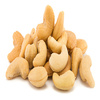 Cashews Yes, dogs can eat cashews. Cashews are OK for dogs, but only a few at a time. They’ve got calcium, magnesium, antioxidants, and proteins, but while these nuts contain less fat than others, too many can lead to weight gain and other fat-related conditions. A few cashews here and there are a nice treat, but only if they’re unsalted. Read More
Cashews Yes, dogs can eat cashews. Cashews are OK for dogs, but only a few at a time. They’ve got calcium, magnesium, antioxidants, and proteins, but while these nuts contain less fat than others, too many can lead to weight gain and other fat-related conditions. A few cashews here and there are a nice treat, but only if they’re unsalted. Read More
 Cheese Yes, dogs can eat cheese in small to moderate quantities. As long as your dog isn’t lactose intolerant, which is rare, but still possible in canines, cheese can be a great treat. Many kinds of cheese can be high in fat, so go for low-fat varieties like cottage cheese or mozzarella. Read More
Cheese Yes, dogs can eat cheese in small to moderate quantities. As long as your dog isn’t lactose intolerant, which is rare, but still possible in canines, cheese can be a great treat. Many kinds of cheese can be high in fat, so go for low-fat varieties like cottage cheese or mozzarella. Read More
 Chocolate NO, dogs should not eat chocolate. This isn’t just an old wives’ tale. Chocolate contains very toxic substances called methylxanthines, which are stimulants that stop a dog’s metabolic process. Even just a little bit of chocolate, especially dark chocolate, can cause diarrhea and vomiting. A large amount can cause seizures, irregular heart function, and even death. Do not have chocolate in an accessible location. If your dog does ingest chocolate, contact a veterinarian or Pet Poison Helpline as soon as possible. Read More
Chocolate NO, dogs should not eat chocolate. This isn’t just an old wives’ tale. Chocolate contains very toxic substances called methylxanthines, which are stimulants that stop a dog’s metabolic process. Even just a little bit of chocolate, especially dark chocolate, can cause diarrhea and vomiting. A large amount can cause seizures, irregular heart function, and even death. Do not have chocolate in an accessible location. If your dog does ingest chocolate, contact a veterinarian or Pet Poison Helpline as soon as possible. Read More
 Cinnamon NO, cinnamon is not OK for dogs. While cinnamon is not actually toxic to dogs, it’s probably best to avoid it. Cinnamon and its oils can irritate the inside of dogs’ mouths, making them uncomfortable and sick. It can lower a dog’s blood sugar too much and can lead to diarrhea, vomiting, increased, or decreased heart rate, and even liver disease. If they inhale it in powder form, cinnamon can cause difficulty breathing, coughing, and choking. Read More
Cinnamon NO, cinnamon is not OK for dogs. While cinnamon is not actually toxic to dogs, it’s probably best to avoid it. Cinnamon and its oils can irritate the inside of dogs’ mouths, making them uncomfortable and sick. It can lower a dog’s blood sugar too much and can lead to diarrhea, vomiting, increased, or decreased heart rate, and even liver disease. If they inhale it in powder form, cinnamon can cause difficulty breathing, coughing, and choking. Read More
 Coconut Yes, coconut is OK for dogs. This funky fruit contains Lauric, which strengthens the immune system by fighting off viruses. It can also help with bad breath and clearing up skin conditions like hot spots, flea allergies, and itchy skin. Coconut milk and coconut oil are safe for dogs too. Just be sure your dog doesn’t get its paws on the furry outside of the shell, which can get lodged in the throat.
Coconut Yes, coconut is OK for dogs. This funky fruit contains Lauric, which strengthens the immune system by fighting off viruses. It can also help with bad breath and clearing up skin conditions like hot spots, flea allergies, and itchy skin. Coconut milk and coconut oil are safe for dogs too. Just be sure your dog doesn’t get its paws on the furry outside of the shell, which can get lodged in the throat.
 Corn Yes, dogs can eat corn. Corn is one of the most common ingredients in most dog foods. However, the cob can be hard for a dog to digest and may cause an intestinal blockage, so if you’re sharing some corn, make sure it is off the cob. Read More
Corn Yes, dogs can eat corn. Corn is one of the most common ingredients in most dog foods. However, the cob can be hard for a dog to digest and may cause an intestinal blockage, so if you’re sharing some corn, make sure it is off the cob. Read More
 Eggs Yes, it’s OK for dogs to eat eggs. Eggs are safe for dogs as long as they are fully cooked. Cooked eggs are a wonderful source of protein and can help an upset stomach. However, eating raw egg whites can give dogs biotin deficiency, so be sure to cook the eggs all the way through before giving them to your pet. Read More
Eggs Yes, it’s OK for dogs to eat eggs. Eggs are safe for dogs as long as they are fully cooked. Cooked eggs are a wonderful source of protein and can help an upset stomach. However, eating raw egg whites can give dogs biotin deficiency, so be sure to cook the eggs all the way through before giving them to your pet. Read More
 Fish Yes, dogs can eat fish. Fish contains good fats and amino acids, giving your dog a nice health boost. Salmon and sardines are especially beneficial – salmon because it’s loaded with vitamins and protein, and sardines because they have soft, digestible bones for extra calcium. With the exception of sardines, be sure to pick out all the tiny bones, which can be tedious but is definitely necessary. Never feed your dog uncooked or under-cooked fish, only fully cooked and cooled, and limit your dog’s fish intake to no more than twice a week. Read More
Fish Yes, dogs can eat fish. Fish contains good fats and amino acids, giving your dog a nice health boost. Salmon and sardines are especially beneficial – salmon because it’s loaded with vitamins and protein, and sardines because they have soft, digestible bones for extra calcium. With the exception of sardines, be sure to pick out all the tiny bones, which can be tedious but is definitely necessary. Never feed your dog uncooked or under-cooked fish, only fully cooked and cooled, and limit your dog’s fish intake to no more than twice a week. Read More
 Garlic NO, dogs shouldn’t eat onions. Like onions, leeks, and chives, garlic is part of the Allium family, and it is five times more toxic to dogs than the rest of the Allium plants. Garlic can create anemia in dogs, causing side effects such as pale gums, elevated heart rate, weakness, and collapsing. Poisoning from garlic and onions may have delayed symptoms, so if you think your dog may have eaten some, monitor him or her for a few days, not just right after consumption. Read More
Garlic NO, dogs shouldn’t eat onions. Like onions, leeks, and chives, garlic is part of the Allium family, and it is five times more toxic to dogs than the rest of the Allium plants. Garlic can create anemia in dogs, causing side effects such as pale gums, elevated heart rate, weakness, and collapsing. Poisoning from garlic and onions may have delayed symptoms, so if you think your dog may have eaten some, monitor him or her for a few days, not just right after consumption. Read More
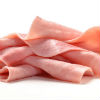 Ham Yes, dogs can eat ham. Ham is OK for dogs to eat, but certainly isn’t the healthiest for them. Ham is high in sodium and fat, so while sharing a small piece is alright, it shouldn’t be a continuous habit. Read More
Ham Yes, dogs can eat ham. Ham is OK for dogs to eat, but certainly isn’t the healthiest for them. Ham is high in sodium and fat, so while sharing a small piece is alright, it shouldn’t be a continuous habit. Read More
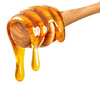 Honey Yes, dogs can eat honey. Honey is packed with countless nutrients such as vitamins A, B, C, D, E, and K, potassium, calcium, magnesium, copper, and antioxidants. Feeding dogs small amounts of honey can help with allergies because it introduces small amounts of pollen to their systems, building up immunity to allergens in your area. In addition to consuming honey, the sticky spread can also be used as a topical treatment for burns and superficial cuts. Read More
Honey Yes, dogs can eat honey. Honey is packed with countless nutrients such as vitamins A, B, C, D, E, and K, potassium, calcium, magnesium, copper, and antioxidants. Feeding dogs small amounts of honey can help with allergies because it introduces small amounts of pollen to their systems, building up immunity to allergens in your area. In addition to consuming honey, the sticky spread can also be used as a topical treatment for burns and superficial cuts. Read More
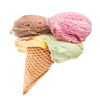 Ice cream NO, dogs shouldn’t eat ice cream. As refreshing of a treat as ice cream is, it’s best not to share it with your dog. Canines don’t digest dairy very well, and many even have a slight intolerance to lactose, a sugar found in milk products. Although it’s also a dairy product, frozen yogurt is a much better alternative. To avoid the milk altogether, freeze chunks of strawberries, raspberries, apples, and pineapples and give them to your dog as a sweet, icy treat.
Ice cream NO, dogs shouldn’t eat ice cream. As refreshing of a treat as ice cream is, it’s best not to share it with your dog. Canines don’t digest dairy very well, and many even have a slight intolerance to lactose, a sugar found in milk products. Although it’s also a dairy product, frozen yogurt is a much better alternative. To avoid the milk altogether, freeze chunks of strawberries, raspberries, apples, and pineapples and give them to your dog as a sweet, icy treat.
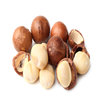 Macadamia nuts NO, dogs should not eat macadamia nuts. These are some of the most poisonous foods for dogs. Macadamia nuts, part of the Protaceae family, can cause vomiting, increased body temperature, inability to walk, and lethargy. Even worse, they can affect the nervous system. Never feed your dog macadamia nuts.
Macadamia nuts NO, dogs should not eat macadamia nuts. These are some of the most poisonous foods for dogs. Macadamia nuts, part of the Protaceae family, can cause vomiting, increased body temperature, inability to walk, and lethargy. Even worse, they can affect the nervous system. Never feed your dog macadamia nuts.
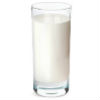 Milk Yes, dogs can have milk. But be cautious. Many dogs are lactose-intolerant and don’t digest milk well. While it is okay for dogs to have a little milk, owners should be cognizant of the symptoms of lactose-intolerance and might want to stick to giving their dogs water. Read More
Milk Yes, dogs can have milk. But be cautious. Many dogs are lactose-intolerant and don’t digest milk well. While it is okay for dogs to have a little milk, owners should be cognizant of the symptoms of lactose-intolerance and might want to stick to giving their dogs water. Read More
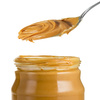 Peanut butter Yes, peanut butter is OK for dogs. Peanut butter can be an excellent source of protein for dogs. It contains heart-healthy fats, vitamins B and E and niacin. Raw, unsalted peanut butter is the healthiest option because it doesn’t contain xylitol, a sugar substitute that can be toxic to dogs. Read More
Peanut butter Yes, peanut butter is OK for dogs. Peanut butter can be an excellent source of protein for dogs. It contains heart-healthy fats, vitamins B and E and niacin. Raw, unsalted peanut butter is the healthiest option because it doesn’t contain xylitol, a sugar substitute that can be toxic to dogs. Read More
 Peanuts Yes, dogs can eat peanuts. Unlike almonds, peanuts are safe for dogs to eat. They’re packed with good fats and proteins that can benefit your dog. Just be sure to give peanuts in moderation, as you don’t want your dog taking in too much fat, which can lead to pancreas issues. Also, avoid salted peanuts. Read More
Peanuts Yes, dogs can eat peanuts. Unlike almonds, peanuts are safe for dogs to eat. They’re packed with good fats and proteins that can benefit your dog. Just be sure to give peanuts in moderation, as you don’t want your dog taking in too much fat, which can lead to pancreas issues. Also, avoid salted peanuts. Read More
 Popcorn Yes, dogs can eat popcorn. Unsalted, unbuttered, plain air-popped popcorn is OK for your dog in moderation. It contains riboflavin and thiamine, both of which promote eye health and digestion, as well as small amounts of iron and protein. Be sure to pop the kernels all the way before giving them to your dog, as unpopped kernels could become a choking hazard. Read More
Popcorn Yes, dogs can eat popcorn. Unsalted, unbuttered, plain air-popped popcorn is OK for your dog in moderation. It contains riboflavin and thiamine, both of which promote eye health and digestion, as well as small amounts of iron and protein. Be sure to pop the kernels all the way before giving them to your dog, as unpopped kernels could become a choking hazard. Read More
 Pork Yes, dogs can eat pork. Pork is highly digestible protein, packed with amino acids, and it contains more calories per pound than other meats. Pork also may be less likely to cause an allergic reaction in some pets compared to other meat. Read More
Pork Yes, dogs can eat pork. Pork is highly digestible protein, packed with amino acids, and it contains more calories per pound than other meats. Pork also may be less likely to cause an allergic reaction in some pets compared to other meat. Read More
 Quinoa Yes, quinoa is OK for dogs. Quinoa is actually an ingredient in some high-quality dry dog foods. The strong nutritional profile of quinoa makes it a healthy alternative to corn, wheat, and soy — starches that are often used to make kibble. Read More
Quinoa Yes, quinoa is OK for dogs. Quinoa is actually an ingredient in some high-quality dry dog foods. The strong nutritional profile of quinoa makes it a healthy alternative to corn, wheat, and soy — starches that are often used to make kibble. Read More
 Salmon Yes, dogs can eat salmon. As mentioned above, fully cooked salmon is an excellent source of protein, good fats, and amino acids. It promotes joint and brain health and gives dog-immune systems a nice boost. However, raw or undercooked salmon contains parasites that can make dogs very sick, causing vomiting, diarrhea, dehydration, and, in extreme cases, even death. Be sure to cook salmon all the way through (the FDA recommends at least 145 degrees Fahrenheit) and the parasites should cook out.
Salmon Yes, dogs can eat salmon. As mentioned above, fully cooked salmon is an excellent source of protein, good fats, and amino acids. It promotes joint and brain health and gives dog-immune systems a nice boost. However, raw or undercooked salmon contains parasites that can make dogs very sick, causing vomiting, diarrhea, dehydration, and, in extreme cases, even death. Be sure to cook salmon all the way through (the FDA recommends at least 145 degrees Fahrenheit) and the parasites should cook out.
 Shrimp Yes, shrimp is OK for dogs. A few shrimp every now and then is fine for your dog, but only if they are fully cooked and the shell (including the tail, head, and legs) is removed completely. Shrimp are high in antioxidants, vitamin B-12, and phosphorus, but also low in fat, calories, and carbohydrates. Read More
Shrimp Yes, shrimp is OK for dogs. A few shrimp every now and then is fine for your dog, but only if they are fully cooked and the shell (including the tail, head, and legs) is removed completely. Shrimp are high in antioxidants, vitamin B-12, and phosphorus, but also low in fat, calories, and carbohydrates. Read More
 Tuna Yes, dogs can eat tuna. In moderation, cooked, fresh tuna is an excellent source of omega-3 fatty acids, which promotes heart and eye health. As for canned tuna, it contains small amounts of mercury and sodium, which should be avoided in excess. A little bit of canned tuna and tuna juice here and there is fine – prepared only in water, not oil – as long as it doesn’t contain any spices. Read More
Tuna Yes, dogs can eat tuna. In moderation, cooked, fresh tuna is an excellent source of omega-3 fatty acids, which promotes heart and eye health. As for canned tuna, it contains small amounts of mercury and sodium, which should be avoided in excess. A little bit of canned tuna and tuna juice here and there is fine – prepared only in water, not oil – as long as it doesn’t contain any spices. Read More
 Turkey Yes, dogs can eat turkey. Turkey is fine for dogs as long as it is not covered in garlic (which can be very toxic to dogs) and seasonings. Also be sure to remove excess fat and skin from the meat and don’t forget to check for bones; poultry bones can splinter during digestion, causing blockage or even tears in the intestines. Read More
Turkey Yes, dogs can eat turkey. Turkey is fine for dogs as long as it is not covered in garlic (which can be very toxic to dogs) and seasonings. Also be sure to remove excess fat and skin from the meat and don’t forget to check for bones; poultry bones can splinter during digestion, causing blockage or even tears in the intestines. Read More
 Wheat/grains Yes, dogs can eat wheat and other grains. Dogs do not have to be grain-free; it is perfectly OK for them to have grains. In fact, grains like wheat and corn are great sources of protein, essential fatty acids, and fiber. If your dog has certain allergies, however, it might be best to avoid grains, but it truly depends on your dog. Read More
Wheat/grains Yes, dogs can eat wheat and other grains. Dogs do not have to be grain-free; it is perfectly OK for them to have grains. In fact, grains like wheat and corn are great sources of protein, essential fatty acids, and fiber. If your dog has certain allergies, however, it might be best to avoid grains, but it truly depends on your dog. Read More
 Yogurt Yes, yogurt is OK for dogs. Plain yogurt is a perfectly acceptable snack for dogs, however some canines may have trouble digesting it. If your dog can digest it, the active bacteria in yogurt can help strengthen the digestive system with probiotics. Be sure to skip over yogurts with added sugars and artificial sweeteners. Read More
Yogurt Yes, yogurt is OK for dogs. Plain yogurt is a perfectly acceptable snack for dogs, however some canines may have trouble digesting it. If your dog can digest it, the active bacteria in yogurt can help strengthen the digestive system with probiotics. Be sure to skip over yogurts with added sugars and artificial sweeteners. Read More
